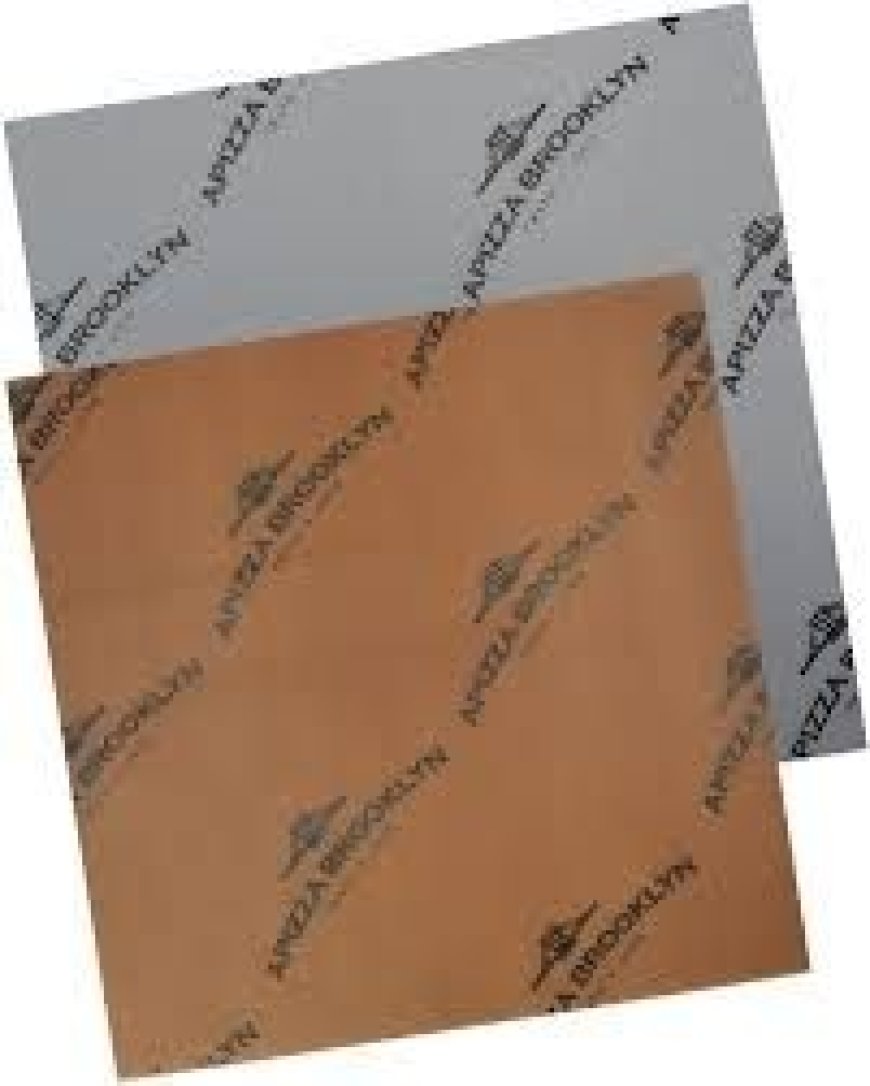How Does Heat Seal Paper Support Brands’ Sustainability Strategies?
Custom heat seal paper is a type of paper coated with a heat-activated adhesive. When heat and pressure are applied.

Sustainability has become a key focus for many brands today. Consumers and governments alike are pushing companies to reduce waste and choose eco-friendly materials. One material gaining attention is heat seal paper. This paper has a special coating that allows it to be sealed tightly using heat, creating a strong bond without the need for plastic adhesives. Understanding how heat seal paper works and its environmental benefits can help brands make smarter choices that align with their sustainability goals.
What Is Heat Seal Paper?
Custom heat seal paper is a type of paper coated with a heat-activated adhesive. When heat and pressure are applied, the coating melts and bonds the paper edges together, creating a secure seal. This process is commonly used in packaging applications where a tight, tamper-evident closure is needed. Unlike traditional plastic films or glues, heat seal paper offers a more natural and recyclable option.
This material is widely used in industries such as food, cosmetics, and pharmaceuticals because it protects products from moisture, bacteria, and contamination. The heat seal creates a barrier that keeps items fresh and safe during transport and storage. Additionally, heat seal paper is strong and flexible, making it suitable for different sealing machines and product shapes.
What makes this material especially relevant today is its compatibility with eco-friendly initiatives. Many types of heat seal paper are made from renewable sources and can be recycled or composted. This contrasts with plastic films, which often end up in landfills and take hundreds of years to break down. Using heat seal paper helps brands reduce their environmental footprint while maintaining product quality and safety.
Environmental Benefits of Heat Seal Paper
One of the biggest advantages of heat seal paper is its positive impact on the environment. Because it is primarily made from paper, it is biodegradable and recyclable. This means it breaks down naturally over time and can be processed in paper recycling streams without contamination. The adhesives used are often water-based and free from harmful chemicals, making them safer for both the environment and consumers.
Compared to plastic packaging, which is a major contributor to pollution and landfill waste, heat seal paper offers a cleaner alternative. Plastic films are difficult to recycle due to mixed materials and adhesives, whereas heat seal paper can be handled by existing recycling systems more easily. This helps reduce plastic waste and supports global efforts to manage resources responsibly.
Another important benefit is the reduction of product waste. The strong seals created by heat seal paper help keep products fresh longer by preventing leaks and contamination. This means fewer products spoil or get damaged during shipping, which lowers the overall waste generated by businesses and consumers. Less waste means less energy and resources are needed to produce replacements, further supporting sustainability goals.
With increasing regulations around packaging waste, such as the Anti-Waste Circular Economy (AGEC) law, companies are encouraged to switch to materials like heat seal paper. This paper adapts well to existing packaging machines, making the transition easier for manufacturers. It also offers customization options, allowing brands to print their logos and designs directly on the paper, which helps maintain brand identity while being eco-friendly.
Functional Advantages Supporting Sustainability
Beyond environmental benefits, heat seal paper offers practical features that support sustainability in a businesss operations. The heat-activated adhesive forms a tight and reliable seal, which is essential for protecting sensitive products like food and cosmetics. This airtight seal prevents moisture, bacteria, and dust from entering, which keeps products safe and extends their shelf life.
This functionality reduces the need for additional protective layers or secondary packaging, which often add to waste. By using heat seal paper, companies can package products in a simpler, more efficient way without compromising safety. This reduction in materials used also lowers transportation weight and volume, which can decrease carbon emissions during shipping.
The papers compatibility with various sealing machines means it can be integrated into existing production lines without major changes. This flexibility benefits startups and established businesses alike, allowing them to adopt sustainable materials without slowing down their operations. The ability to customize heat seal paper also means brands can maintain a professional look while meeting green packaging standards.
Another key feature is tamper evidence. The seal created by heat seal paper shows clear signs if it has been opened or tampered with, which is important for consumer trust and product safety. This is especially critical in industries like pharmaceuticals and food, where contamination risks must be minimized.
Heat Seal Paper in Regulatory and Market Trends
The rise of sustainability regulations worldwide is pushing brands to rethink their packaging choices. Laws like the AGEC law in Europe ban certain types of plastic packaging and encourage the use of recyclable and biodegradable materials. Heat seal paper fits well within these new rules because it offers a recyclable alternative that does not sacrifice performance.
Consumer preferences are also shifting. More people want to buy from companies that care about the environment and reduce plastic waste. Brands that use heat seal paper can appeal to this growing market segment by demonstrating their commitment to sustainability. This can improve brand reputation and customer loyalty.
In addition, the circular economy model, which focuses on reducing waste and reusing materials, benefits from heat seal paper. Because this paper can be recycled and composted, it helps close the loop on packaging materials. Some companies even use recycled paper fibers to produce heat seal paper, further reducing the demand for virgin resources.
The market for heat seal paper is expanding as more industries recognize its value. Food and beverage companies, for example, use it to package fresh products in a way that reduces plastic use. Cosmetic brands also adopt heat seal paper to protect delicate items while meeting sustainability targets. This trend is expected to continue as technology improves and more options become available.
How Heat Seal Paper Helps Brands Achieve Sustainability Goals
Brands looking to meet sustainability goals can benefit from using custom heat seal paper solutions. By working with suppliers like Waxpapershub, businesses can get tailored products that fit their specific needs while supporting environmental commitments. Customization allows companies to choose the right paper weight, adhesive strength, and print design to match their brand and product requirements.
Using heat seal paper also helps reduce packaging waste and lowers the carbon footprint of shipping. Because the material is lightweight and strong, it reduces the need for excess cushioning and secondary packaging. This leads to cost savings and less environmental impact over time.
Waxpapershub supports businesses and startups in adopting sustainable packaging by offering expertise in custom solutions. Whether a company needs heat seal paper for food pouches, cosmetic wraps, or pharmaceutical seals, Waxpapershub can provide materials that meet performance and sustainability standards. This helps brands stay competitive while aligning with consumer expectations and regulatory demands.
The ability to integrate heat seal paper with automated form-fill-seal machines also streamlines production. This efficiency reduces energy use and speeds up packaging processes, which benefits both the environment and the bottom line. Brands can maintain high-quality packaging without sacrificing sustainability.
Innovative Uses and Future Potential
Heat seal paper is not just a replacement for plastic films; it is opening new possibilities for sustainable packaging design. Some companies use it to create recyclable envelopes, bags, and tags that are fully compostable. Others combine heat seal paper with recycled fibers or other eco-friendly materials to enhance performance while minimizing waste.
Emerging technologies are improving heat seal papers resistance to moisture, chemicals, and temperature changes. This allows it to be used in more demanding applications such as ovenable food trays or medical packaging. These advances increase the materials versatility and appeal to a wider range of industries.
Another innovative use is in recycling initiatives. For example, heat seal paper can be used as the outer layer of dunnage bags filled with recycled cardboard pieces. These bags provide cushioning in shipments and reduce the need for new packing paper, creating a closed-loop system that saves resources.
As awareness of environmental issues grows, heat seal paper is likely to become a standard choice for brands committed to sustainability. Its ability to balance protection, recyclability, and customization makes it a practical and responsible option.
Why Choose Waxpapershub for Sustainable Heat Seal Paper Solutions
For businesses interested in exploring custom heat seal paper, Waxpapershub offers reliable and knowledgeable support. Waxpapershub understands the importance of sustainability and helps brands find the right materials to meet their goals. With a focus on quality and eco-friendly options, Waxpapershub works closely with clients to develop packaging that protects products and the planet.
Waxpapershubs custom solutions allow companies to maintain their brand identity while switching to greener materials. Whether a startup or an established business, Waxpapershub can provide heat seal paper that fits specific product needs and machinery compatibility. This partnership helps brands reduce waste, lower environmental impact, and comply with regulations.
Choosing Waxpapershub means gaining access to a wide range of sustainable materials and expert advice. This can simplify the transition to eco-friendly packaging and ensure long-term success. By using custom heat seal paper from Waxpapershub, brands take a meaningful step toward more responsible business practices.
Conclusion
Heat seal paper offers a valuable way for brands to support their sustainability strategies. Its environmental benefits, such as biodegradability and recyclability, make it a better choice than many plastic alternatives. The strong, moisture-resistant seals protect products and reduce waste, while its compatibility with existing machinery makes adoption easier.
As regulations tighten and consumer demand for green packaging grows, heat seal paper is becoming a key material in sustainable packaging solutions. Brands that use custom pizza liner paper can reduce their environmental footprint and meet market expectations. Working with experienced providers like Waxpapershub helps ensure these solutions are effective and tailored to business needs.
By choosing heat seal paper, companies invest in packaging that balances protection, performance, and planet-friendly qualities. This supports a future where packaging waste is minimized and sustainability is a core part of brand identity.









































